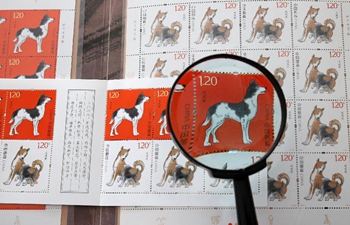LONDON, Jan. 3 (Xinhua) -- A drug developed for type 2 diabetes could possibly be a boon for patients with Alzheimer's disease, according to new research published in the Brain Research journal.
The "triple agonist" drug combining GLP-1, GIP and Glucagon receptors has been proved to be able to protect the brain from degeneration and effectively reverse memory loss, according to a recent study by British and Chinese universities.
The drug could also enhance levels of a brain growth factor which protects nerve cell functioning, and slows down the rate of nerve cell loss, among other benefits.
Previous studies have shown a link between type 2 diabetes and Alzheimer's disease, as impaired insulin is connected to cerebral degenerative processes and insulin resistance has been found in Alzheimer patients' brains.
The experiment has only been conducted on mice, but it "holds clear promise of being developed into a new treatment for chronic neurodegenerative disorders such as Alzheimer's disease," said lead researcher Professor Christian Holscher of Lancaster University.
Other scientists not involved in the trial are cautiously optimistic about the result.
"There is a long road between studies that show an effect in animals and treatments in the hands of patients," Dr. David Reynolds, chief scientific officer at Alzheimer's Research UK told the Independent Newspaper. "Scientists will only be able to realize the potential of promising findings like these if we continue to invest in research."

















